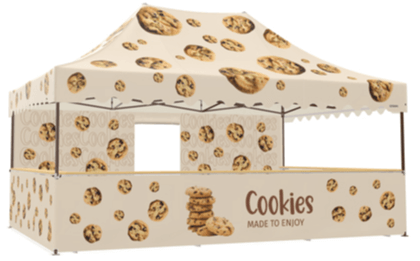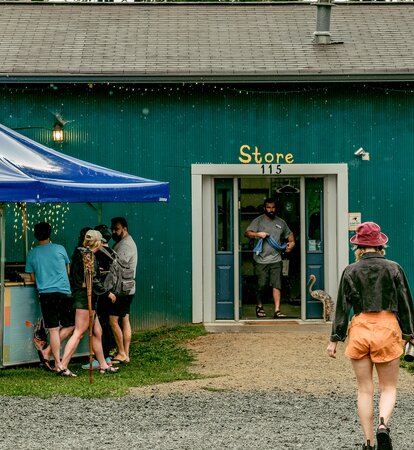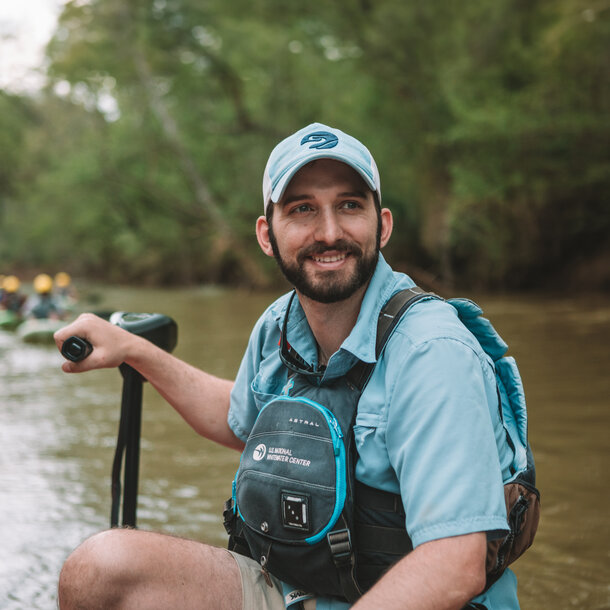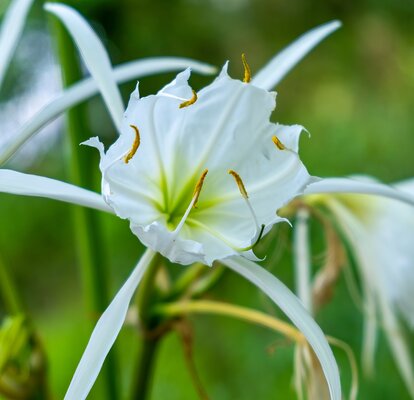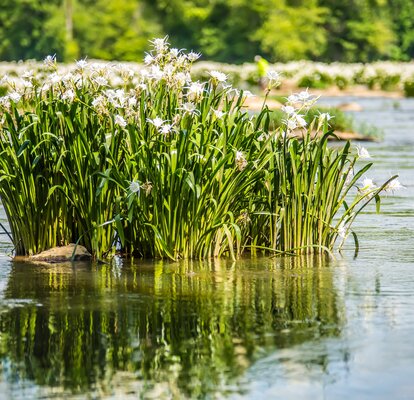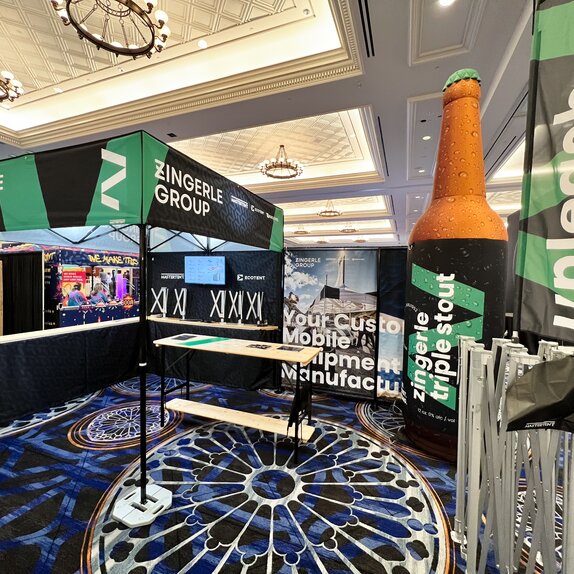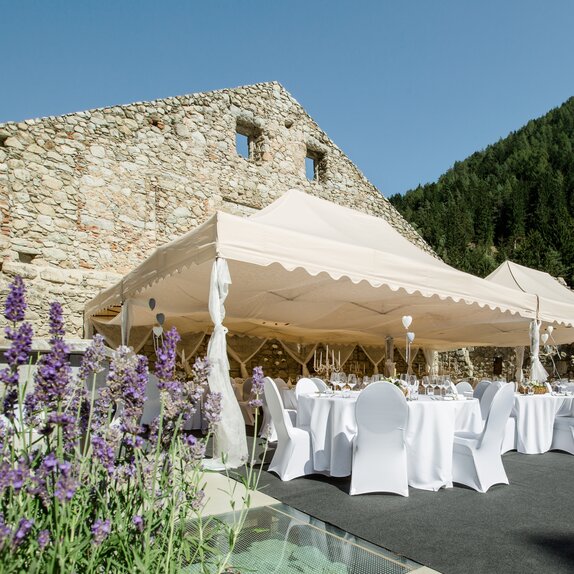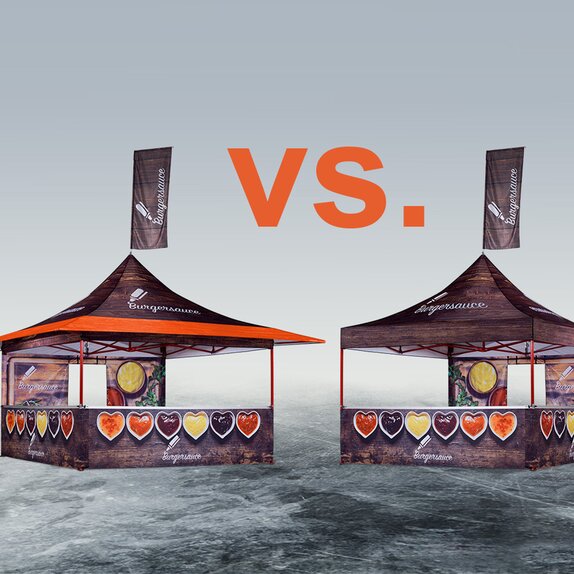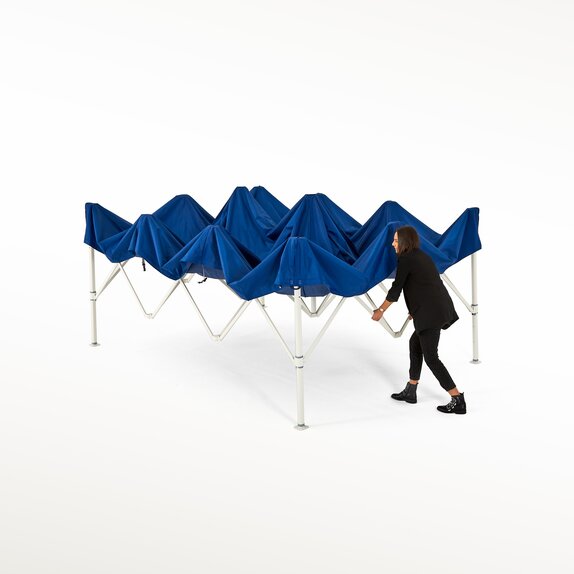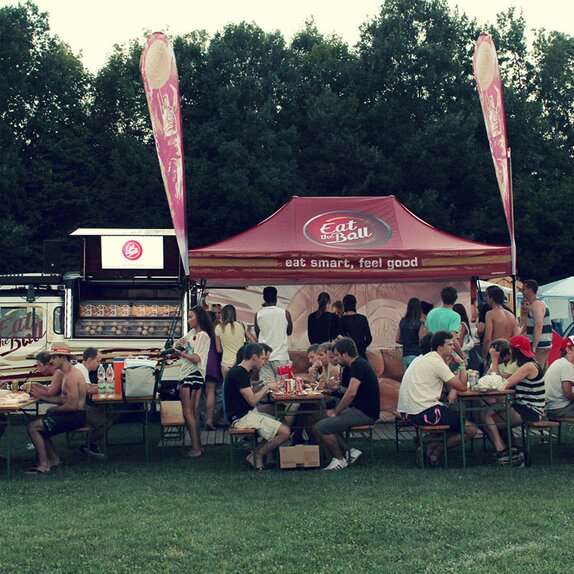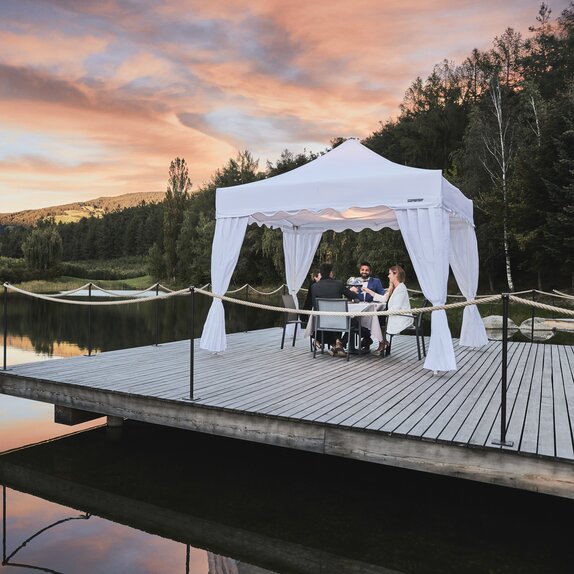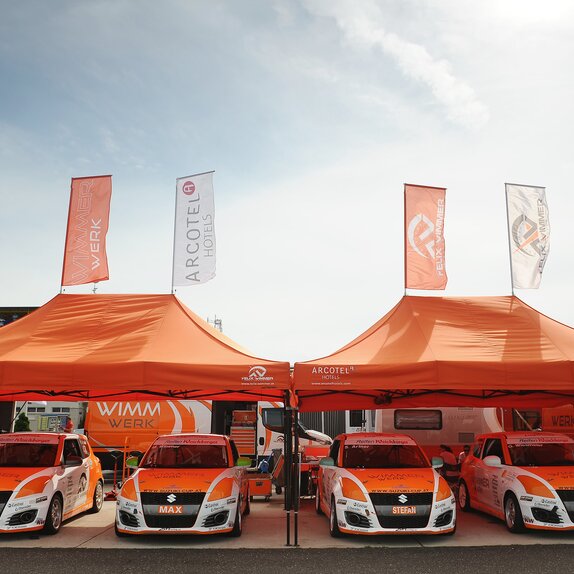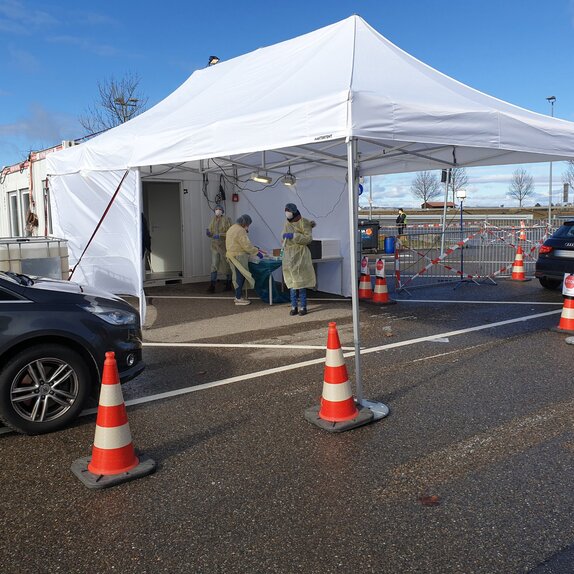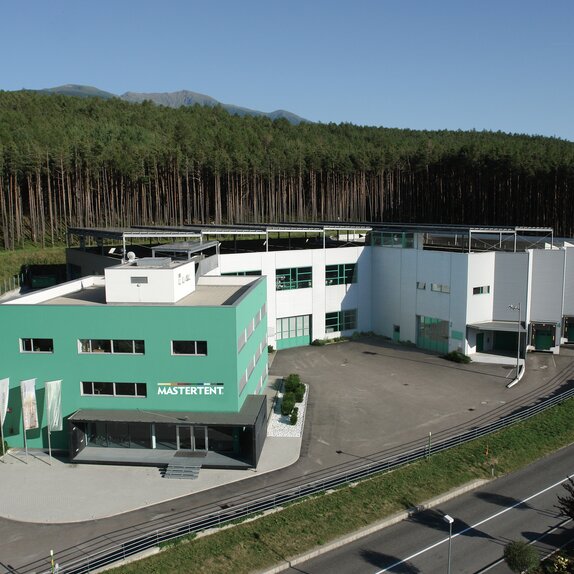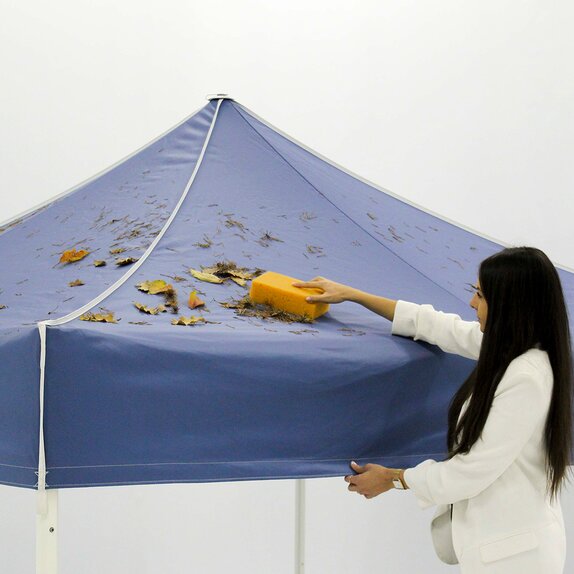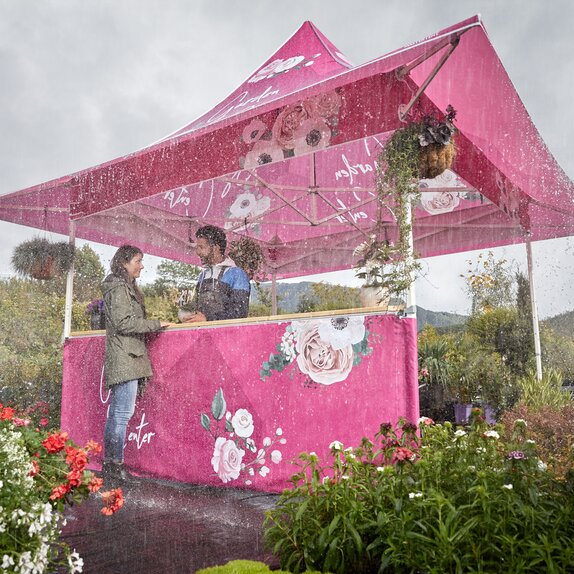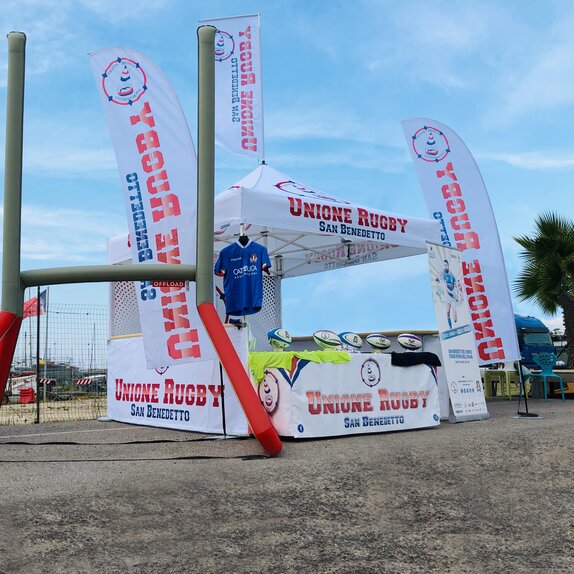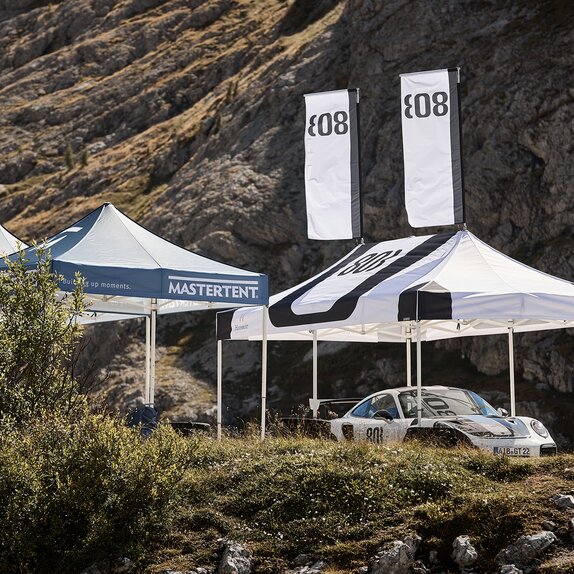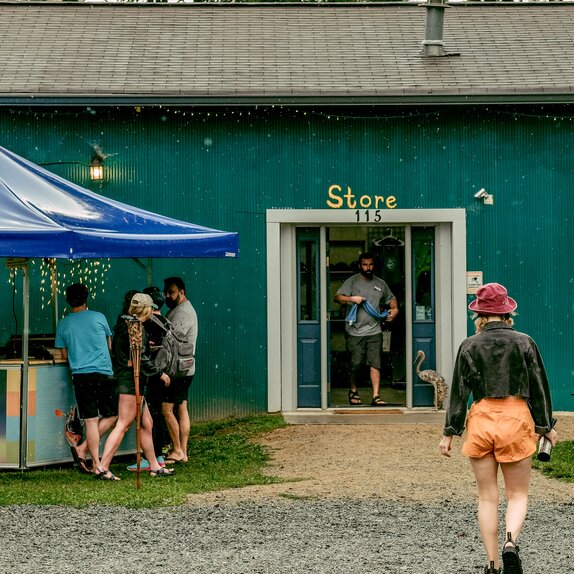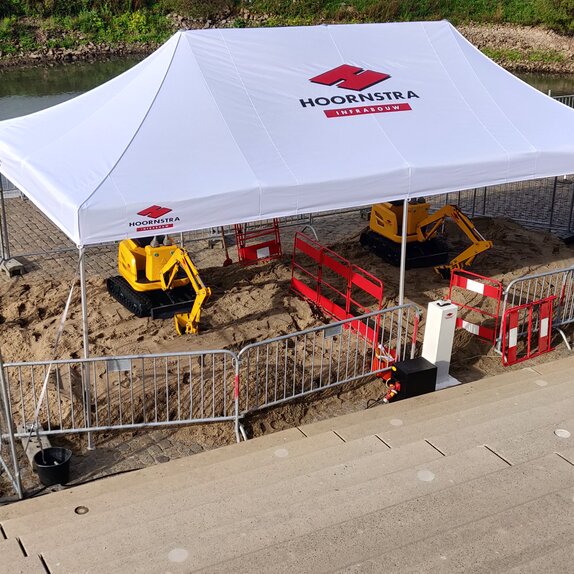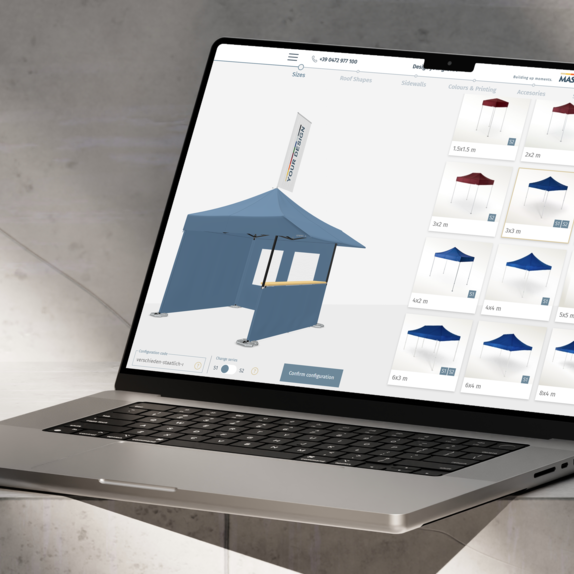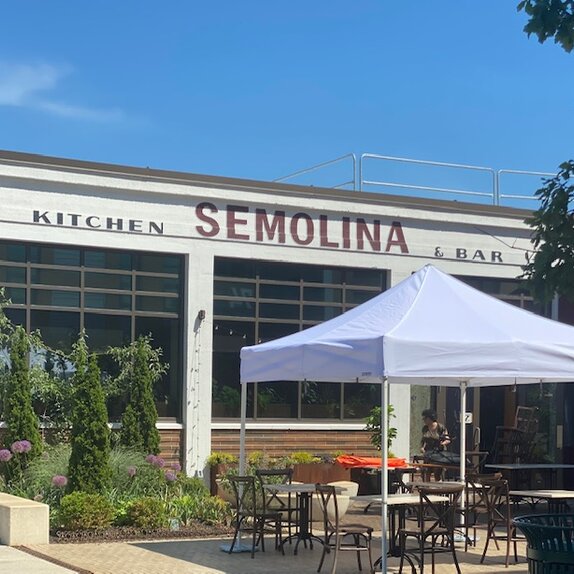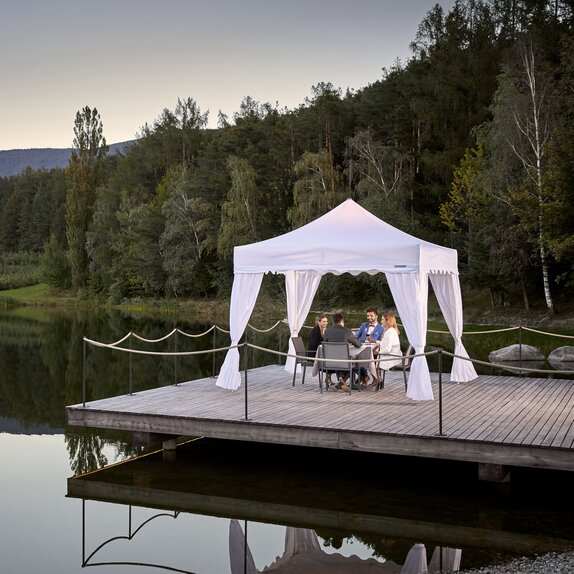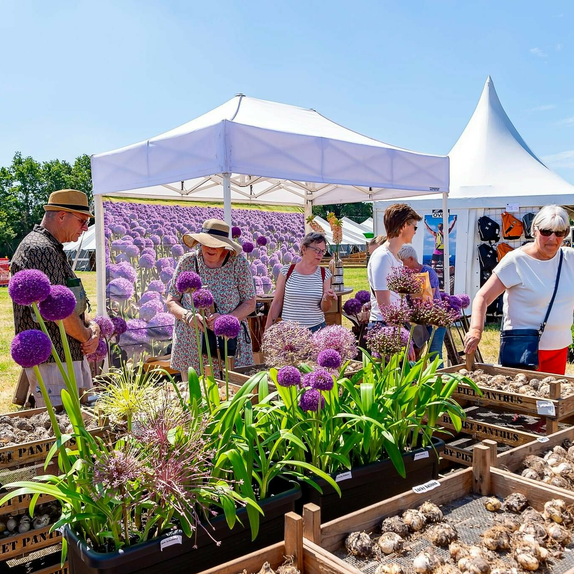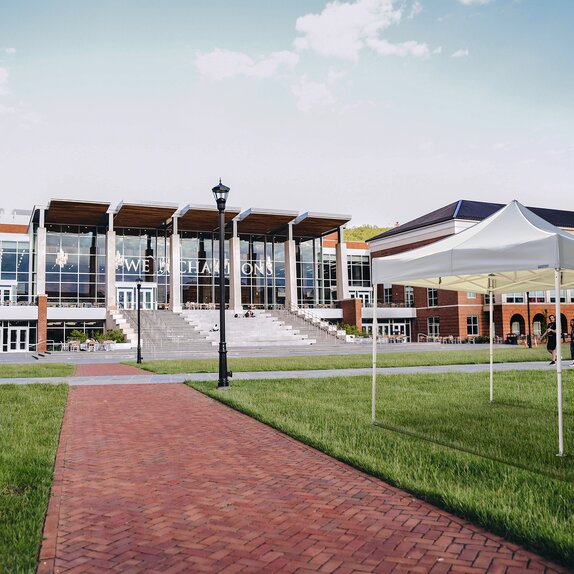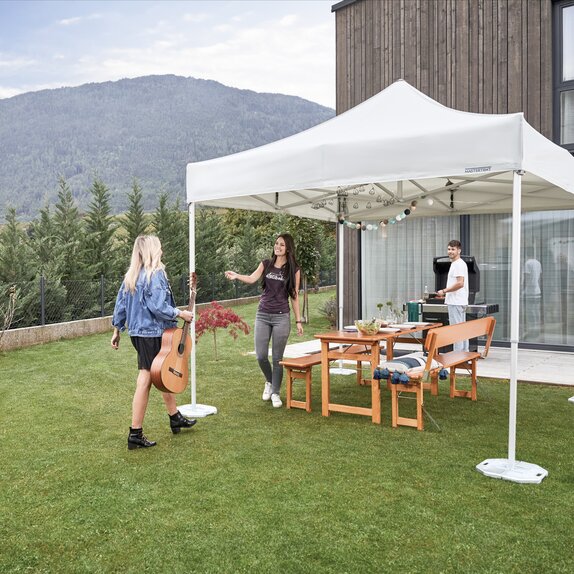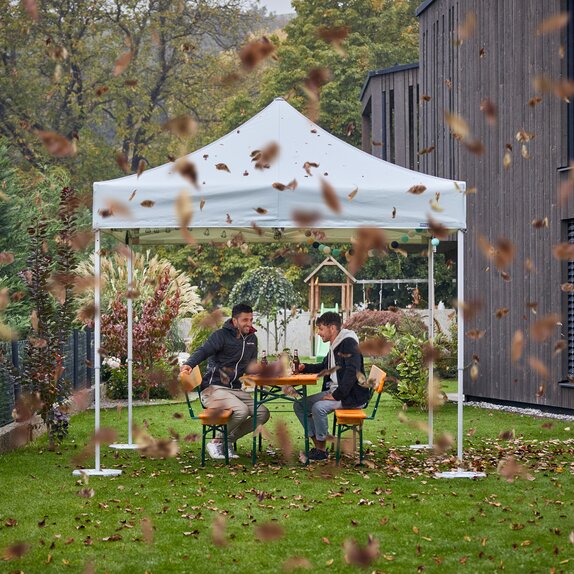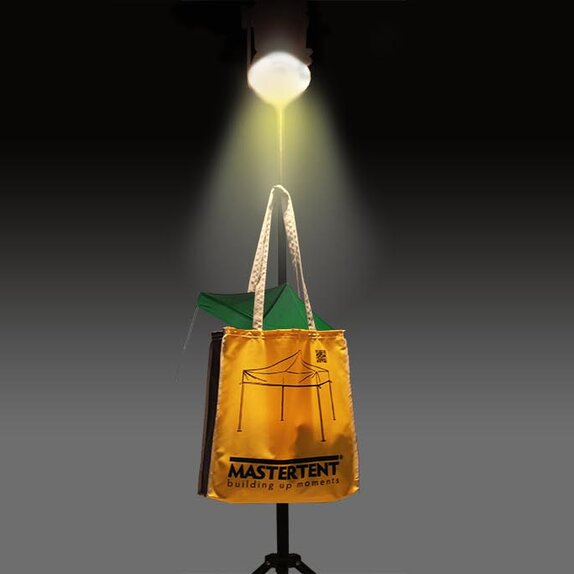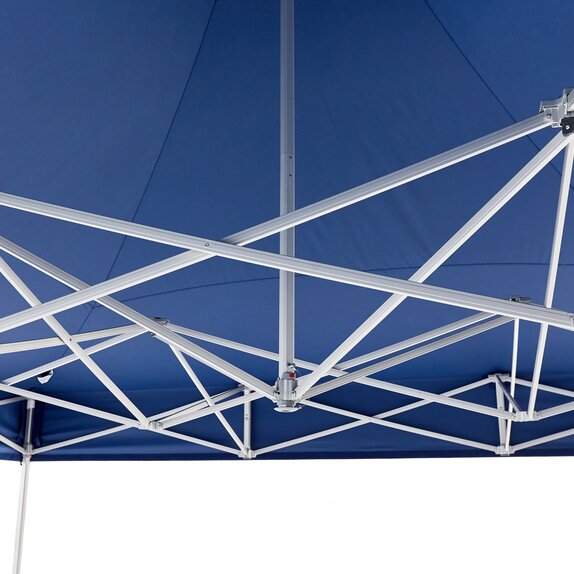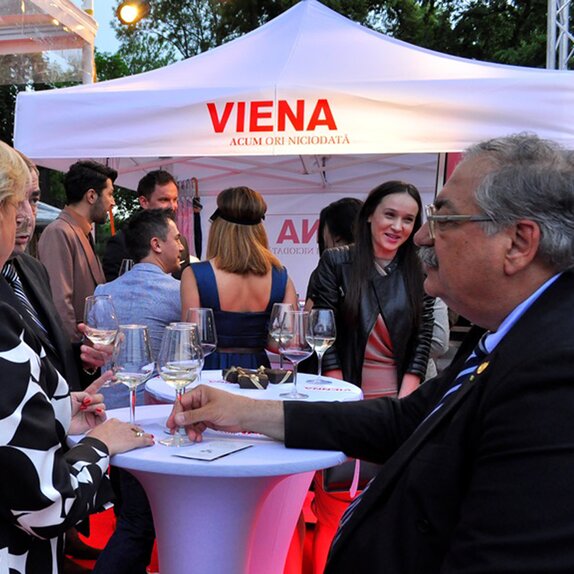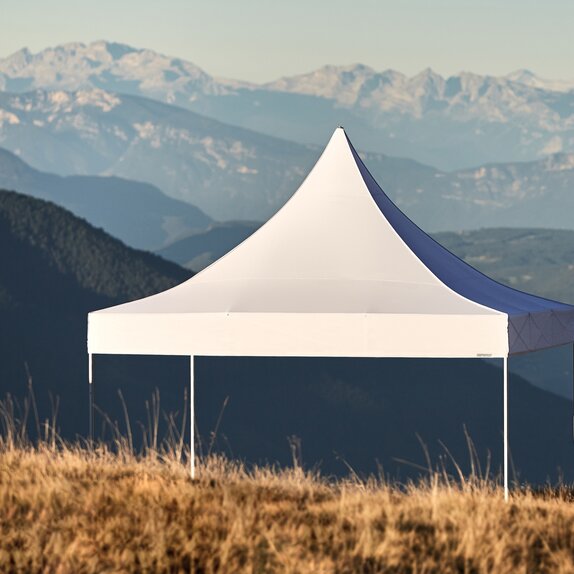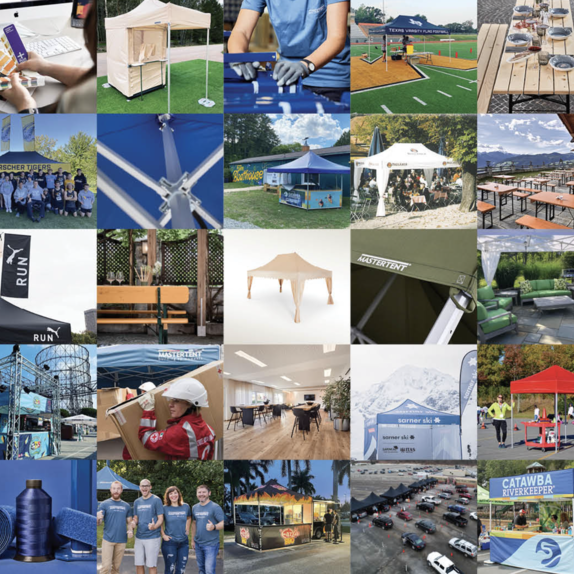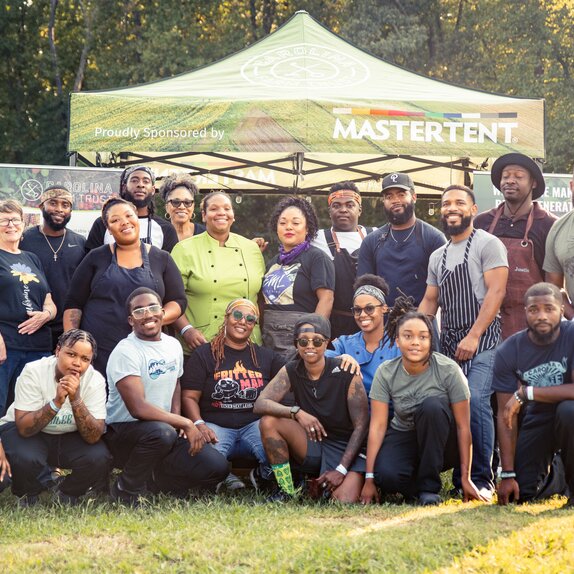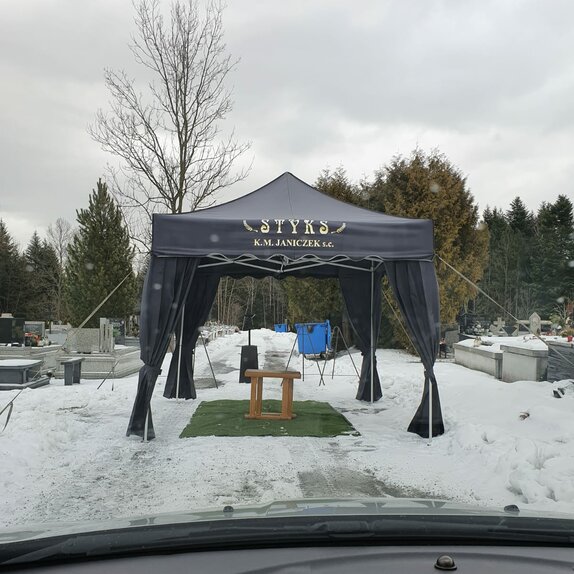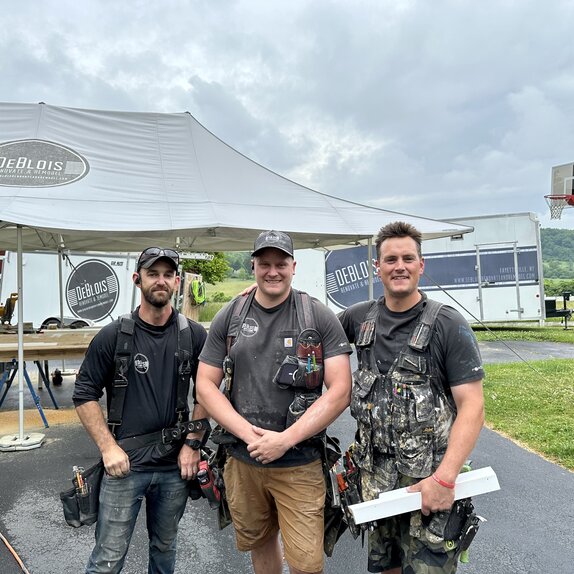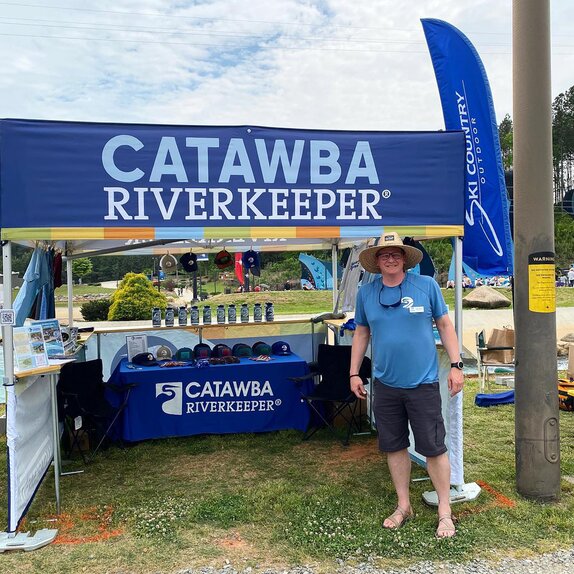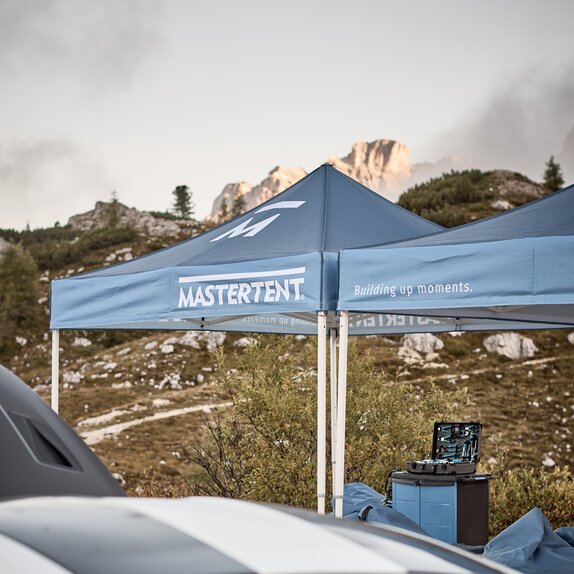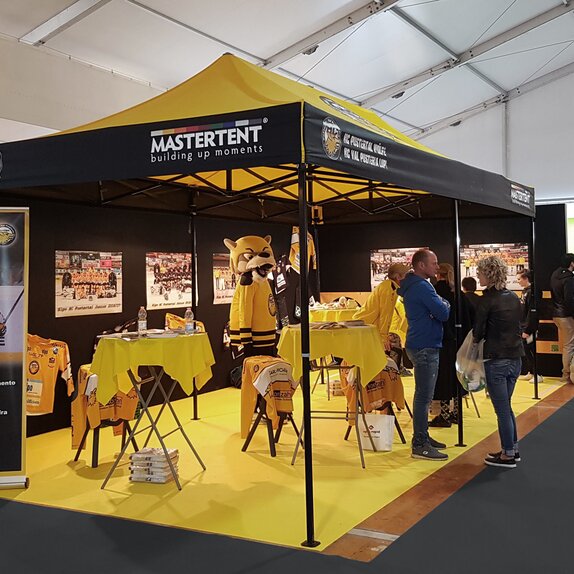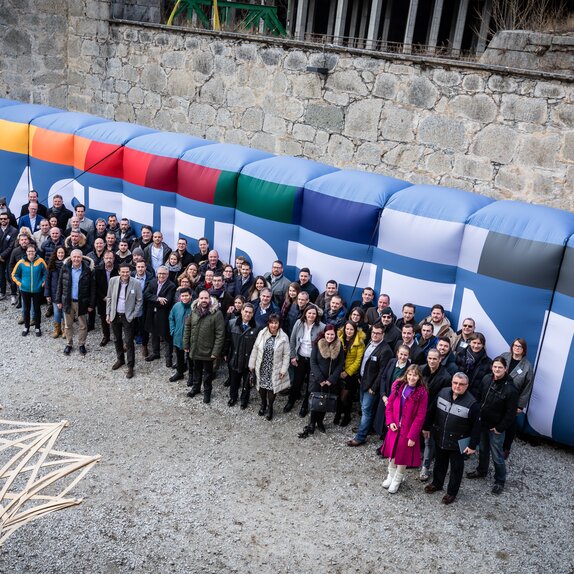Double-Duty
How a Vending Pavilion Doubled as a Science Lab for One Conservation Organization
Nonprofit organizations are often creative problem-solvers. Catawba Riverkeeper, an environmental organization in North Carolina, is proof. The nonprofit tackles its mission to preserve, protect, and restore the waterways of the Catawba River through education, advocacy, and engagement in all sorts of interesting ways.
Of course, fundraising events, community initiatives, and volunteer opportunities are all ways the organization carries out its objectives. But, Catawba Riverkeeper also supports its cause in other, more out-of-the-box ways.
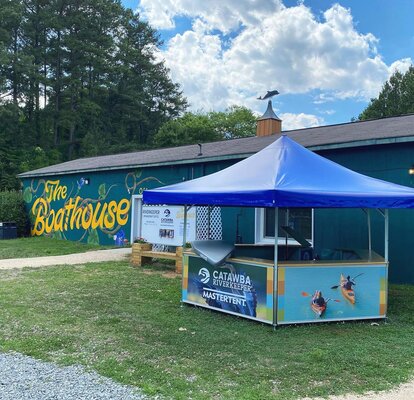
For example, it educates the public about the importance of clean local water through The River Room, a taproom the organization runs featuring beers from breweries located in the river basin. Likewise, two other retail locations, Confluence and The Boathouse, support its mission by way of art, music, and recreation.
So, when Catawba Riverkeeper scientists faced a new challenge, restoring a threatened plant species, the team wasn’t daunted. Instead, they looked around at what they had and found the perfect solution right under their noses—their Mastertent pavilion.
Multipurpose Mobile Equipment
Under normal circumstances, the six-sided pavilion serves as an outdoor vending station. In the summer months, the pavilion functions as a kayak rental station at The Boathouse. And, at events like Jam at the Dam, the pavilion, which the team affectionately calls the “hexabar,” acts as a beer station.
The pavilion’s tool-free, quick-locking design makes it easy to set it up anywhere, should the organization need to move it. At the same time, the structure can function as a semi-permanent installation, standing strong in one location for an extended time. Whether onsite or out in the world, the pavilion helps Catawba Riverkeeper fulfill the “engagement” part of its mission.
Restoration has become a growing part of the organization’s activities. Catawba Riverkeeper recognizes that protecting and preserving the river are beneficial, but sometimes, more intervention is required.
Recently, the stable and durable Mastertent pavilion found an unexpected use in Catawba Riverkeeper’s restoration efforts. When the team set out to propagate a rare spider lily, the structure offered an unlikely sanctuary for the fragile seedlings.
Space to Flourish
For context, the Rocky Shoals Spider Lily is known both for its beautiful flowers and for its environmental benefits. Over the years, however, the spider lily population has suffered due to changes in the environment. Dammed waterways and pollution have threatened the plant’s natural habitat—enough to receive consideration for protection under the Endangered Species Act.
Landsford Canal State Park, a portion of the Catawba River in South Carolina, is home to the largest concentration of Rocky Shoals Spider Lilies. The Duke Energy’s 2023 species report provided assurance that the population in this area appears to be thriving. The lilies there have larger, denser clump sizes—an indicator of the plants’ strength—and more blooms. It provides a model for how spider lilies could thrive in similar habits.
Recent changes to the dam system in the area restored water flow to the Great Falls bypasses, creating a perfect new environment for spider lilies to grow. Scientists suspect that, in the absence of the dam, the lily seedlings would have traveled to this area and taken root on their own. That suspicion is what prompted Clemson University professor Dr. Althea Hagan and her students to join forces with Catawba Riverkeeper to propagate spider lilies in Great Falls.
In July 2023, after notifying the relevant agencies and receiving permissions, the work began. Originally, the joint team of students and scientists had planned to harvest spider lily seeds from Lansford Canal State Park and plant them in Great Falls all within the same day. A small dam maintenance project, however, forced the team to change its plans.
The Best of Both Worlds
Unlike typical garden seeds, spider lily seeds require a very particular environment. The seeds need to be in aerated water at a particular temperature to survive. Luckily, Dr. Hagan had a kiddie pool, aerators, and a temperature gauge on hand.
One challenge, however, remained: finding the right outdoor space. The plants needed natural light, but animal predators and overheating in the sun both posed a concern if the plants were left out in the open. That’s when the Catawba Riverkeeper team realized—their Mastertent pavilion offered the best of both worlds.
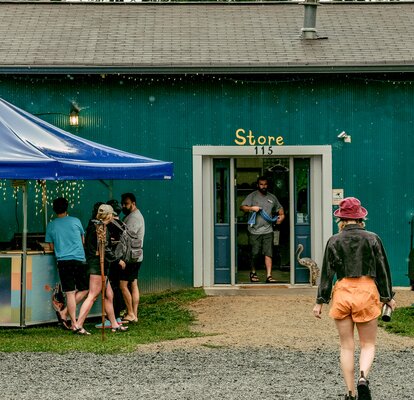
With walls around the structure's base and a broad, sloping roof, the pavilion offered an ideal shape to keep the seedlings sheltered from the elements. At the same time, the top, open portion of the pavilion lets the rays of the sun stream in just enough to nurture growth. Thanks to the pavilion’s sturdy design, the team didn’t have to worry about wind or other weather disrupting the equipment or the seeds.
Catawba Riverkeeper nurtured the seedlings beneath the pavilion for several weeks. When the time came to transfer them to the Long Reach Bypass in Great Falls, nearly every seed had survived and begun to grow roots. A major success, the spider lily project marked new territory for Catawba Riverkeeper. The collaborative effort was a pilot for a much larger, multi-year project that received funding shortly thereafter.
As the saying goes, “Where there’s a will, there’s a way.” Catawba Riverkeeper demonstrates that a little creativity and versatile equipment can transform a problem into a success. We’re proud to be a small part of the important environmental work Catawba Riverkeeper facilitates, right in our backyard.
At Mastertent, sustainability is in our DNA. From our focus on lasting quality and our solar-powered production to our reforestation program, upcycling program, and sustainable fabrics, we care about this planet we call home. So, we were delighted to hear about the unorthodox use of our pavilion and the role it played in fostering a healthier ecosystem. Working with organizations like Catawba Riverkeeper is a natural extension of our environmental values.
To donate to Catawba Riverkeeper, volunteer at a cleanup, visit a retail location, or attend an event, visit the Catawba Riverkeeper website.
Interested in learning more about our pavilions and discovering how they might help your business advance its goals? We’d love to help. Our Product Experts can help you land on the right option. Contact us to get started.
